Don Felder - Interview
by Lisa Torem
published: 7 / 10 / 2012
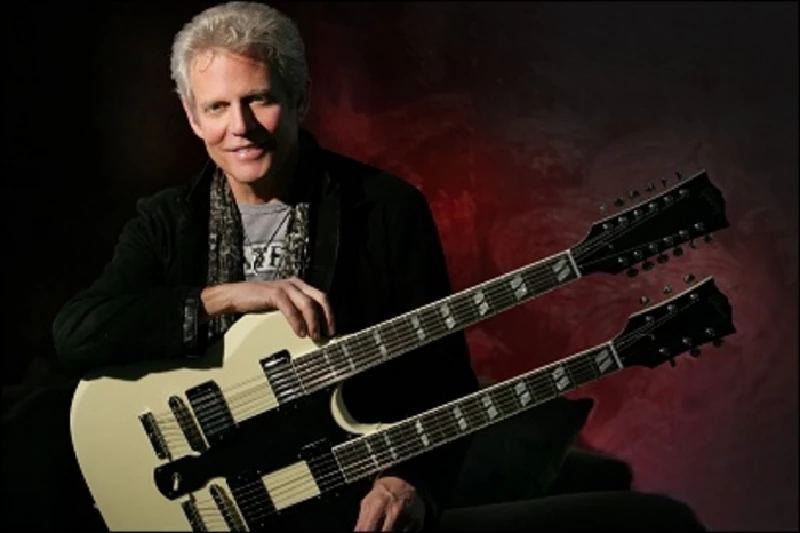
intro
Ex-Eagles guitarisr Don Felder speaks to Lisa Torem about his time in the group, his bestselling book 'Heaven and Hell: My Life in the Eagles (1974-2001)’ and 'Airborne', his first solo album in nearly thirty years
One day Don Felder was asked to add slide guitar to the Eagles recording of ‘Good Day in Hell’, and the next day he was asked to join the band. As lead guitarist in the band between 1974-1980 and then from 1994 to 2001, Felder enjoyed a brilliant career in which the song ‘Hotel California’ shot up the charts, but he also faced some of the darkest moments of his life. Though the band gained entry to the Rock and Roll Hall of Fame, Felder endured long legal battles with his colleagues, Don Henley and Glenn Frey, although they put their differences aside for the MTV concert in the 90s, which resulted in the ‘Hell Freezes Over' live album. He has also wrote the anthemic title track for the film ‘Heavy Metal’, and had a major bestseller, ‘Heaven and Hell: My Life in the Eagles (1974-2001)’, which was published in 2006. Decades after his 1983 only other solo album, ‘Airborne', Felder has just released ‘Road to Forever’, an album rich in both its collaborations and diverse style. Talking to Don Felder on the phone was as engaging and natural as speaking to an old high school chum. He spoke openly about the many changes he has undergone in his career and personal life, and with unbridled excitement about his newest album. PB: Don, you’ve got such an interesting background. You’ve played with Stephen Stills, and traded licks in the late 60’s with Tom Petty and Duane Allman. Did you have a sense back then that these men would go on to be so successful? DF: I don’t know if you know anything about Gainesville where I come from, but it’s a very, small little town and if the University of Florida weren’t there, it would still be called ‘Hog Town Creak’ – its original name. So I don’t think anyone had any idea of the magnitude of success that we would experience. We just all really loved playing music and we kind of taught each other. I taught Tommy guitar lessons and Duane showed me how to slide and so – I think Lynyrd Skynyrd was playing over in Jacksonville. There was really an unusual number of people who came out of that little area of North Central Florida who went on to become platinum selling artists and ended up in the Rock ‘n’ Roll Hall of Fame. I don’t know if there was something in our fluoride that was in our good, old Florida water or what we were smoking at the time but it seemed to work wonders for us all. PB: Did your parents encourage you to play? DF: There was no one in my family on either side back to my grandparents who played instruments or anything. My father used to work at a plant as a mechanic. He would come home at the end of the day just covered in grease on his coveralls. He would take off his coveralls outside the back door of the house, he would come in and take a shower and sit in this big, leather chair and listen to Tommy Dorsey and Glenn Miller, the horn bands. And the expression that I saw on his face really inspired me to want to please him by playing music. But this was after years of therapy you understand (Laughs). He encouraged me by helping me buy a guitar and amp. He taught me how to solder my guitar cables because I kept stepping on them and breaking them even at ten or twelve. He taught me how to do wiring and solder the wires. Everything he helped me with showed back up later in my career. When we finished recording ‘Hotel California,’ and we were getting ready to go out on the road, I had played like sixteen guitar tracks on that record. I tried to figure out “how do I play all of these different guitar parts live?” I came up with the idea of taking a double neck guitar one had a twelve-string on it which was for the intro. of the ‘Hotel California’ record and the other one is a six-string electric that you can plug into an amp. They both have outputs and I said, “How do I separate these?”– there were two guitars. So I took a drill and drilled a hole in the top of this guitar, I rewired the inside of it so that each guitar neck and pickup would go out on a discrete, separate output. I don’t know if this is too complex and technical for you, so I could run the twelve-string into a Leslie that sounds like it does on the record and then I could flip a switch and reach down to grab the six-string neck and play all the solos on the ending and stuff. What he gave me and how he mentored me – he didn’t give me a fish, he taught me how to catch fish and so he was very crucial in propelling me on my early career, in the things that he helped me with, although he was somewhat disappointed in me academically. He never really got to see me with my success with the Eagles because he worked until he was 65 and passed away at 66. There was about a year at that time when he was really ill. But I felt somewhat redeemed after I published: ‘Heaven and Hell” My Life in the Eagles’ and it ended up being on the top of the New York Times Best Sellers List, and my academic success was somewhat offset by the success of my autobiography. PB: In 1974, you had a choice between touring with Graham Nash and touring with The Eagles. Did you make the right choice? DF: Well, I actually went to Graham Nash’s hotel in Los Angeles, The Continental Hyatt House, which had been nicknamed the “Riot House” when everybody in Rock ‘n’ Roll used to stay there and tear the place apart. But they were getting ready to go back out and I had just received this offer from the Eagles and I was supposed to go back out with them, so I went over to Graham’s hotel and I had a heart to heart talk with him and asked him what he thought I should do. And Graham told me that I should definitely join that band – you could be a sideman your whole life and just wind up playing behind someone else or if you’re in a band of your own you have a chance of having your own career. I took his advice. I’ve admired him, and think the world of him and followed him. Our paths have crossed numerous times and his oldest son, Jackson, is my youngest son’s big brother. They went to the same school and he took my son under his wing, and he kind of helped him. We would go to parent-teacher group meetings at his house, and so when it came time to have people sing background on this CD of mine, “Road To Forever,” I chose my favourite people, Stills, Crosby and Nash to come out and sing on this record with me and they were more than delighted to help. PB: When Bernie Leadon left the Eagles in 1975, and was replaced by Joe Walsh was that a difficult transition since Bernie had been your initial contact in the band? DF: Bernie and I had a band in high school together called the Maundy Quintet. I had been friends with Bernie for a long, long time. We had some regional hits in the Southeast on some records we had made and sold that were played on the radio. So Bernie had been a high school friend of mine and, when he decided that he was going to leave the band, I really pleaded with him not to do it. Bernie was a brilliant instrumentalist. He played acoustic guitar, electric guitar, pedal steel; banjo and he played all of those instruments on various records and live, so when he left I was given the daunting task and the burden of learning to play all of those instruments. So it was sad to have lost a very, close friend, and it was a lot of work for me to assume all of that musical responsibility. But at the same time, Joe was a rock and roll guitar player. Bernie was sort of a country music guitarist and musician. So I welcomed Joe, and the fact that he enabled me, since my roots had always been in rock and roll, to write and play with someone that was in the same genre in which I had my feet deeply embedded. PB: Judging from what you wrote in your autobiography, you went through quite a lot with the Eagles. There were lawsuits and counter lawsuits, and you waited a very long time to reach a settlement. Was it worth it? DF: I really had no choice. I was kind of blindsided with determination from the band and it left me really no choice but to do what I had done, but I did it because I had owned a third of “Eagles Limited.” The three owners of the band were Henley, Frey and Felder and when they fired me from the band they made no offers to buy my shares of the company out. Now you can fire someone who is an employee, but you cannot fire a stockholder or a shareholder. You just can’t do it. So I had no alternative but to file a lawsuit. It was the only time I had ever been involved in a lawsuit and, hopefully, I will never be involved in one again because it’s less than enjoyable. PB: Was it difficult to write about this in your memoirs? DF: Yes, it was very difficult to do battle against some friends of mine; people that I thought were friends of mine for 27 years, partners that worked together, travelled together, been in hotel rooms and cars and airplanes. We just lived our lives together for 27 years, and yet having such a harsh departure and a very painful departure really left me at a place where I was really kind of wounded that my friends had turned on me that way, and they left me no alternative but to file a lawsuit against them and having to go through all of the depositions and litigations and all of that stuff. It’s just not fun. PB: Was it challenging to put aside your personal differences at the ‘Hell Freezes Over’ reunion? DF: Not really. There had always been some rubs personally between some of the guys in the band, including between Don Henley and Glen Frey, but there was such a massive amount of money on the table that everyone was willing to be on their best behaviour in order to play music together, and go back out together and give it a shot to try to have a reunion. The Beach Boys just had a similar attempt and they determined - some of the personal conflicts and rubs that had been there in the past – people had not grown or matured to the point where they could let go of those, and they got away again finally and that was the downfall of that attempt. I think it was a very similar thing that took place with the Eagles at my departure. I think some of the rubs that were going on that had always been there resurfaced and that was the result; my being fired. PB: You discussed some lighter topics in the book like meeting Keith Richards. Was he the guy you thought he would be? DF: Most of the time when you admire people from afar you really don’t have any idea of who they are as a person. You know their music, you know their face from television, cover art on records or CDs and you feel that you have an affinity towards those guys because of some image in your head, but you very rarely know who they are. Only on a few rare occasions have I met people who I have really admired who have been true to my concept of that was. Usually people can be quite different. They’re either shockingly pleasant or shockingly not pleasant. So I think that rings true about a lot of celebrities that keep themselves in a very personal life style ,and we don’t get to see or hear much about them either directly or on television, to see who they are. All the politicians do that as well. They are very close to the vest. PB: ‘Road to Forever’ is your first solo album since ‘Airborne’ (1983. Can you talk about some of the co-writers on the new album and which collaborations stand out in your mind? DF: There was originally going to be a producer named Greg Ladanyi, a very famous record producer who’s made a lot of hit records. He made some Jacksone Brown records, a lot of Don Henley records. He made a lot of different, great records in Los Angeles. He and I had been talking together and working together and playing golf together. listening to some of my tracks for about three, three and a half months. And then he had an artist in Greece, who was sort of the Greek Madonna. I don’t know her name but he had to fly from Los Angeles over to Greece to see one of her shows in a big soccer stadium. While he was there, he died a very tragic death, and this was about two weeks before this CD was to commence. He passed away. In our conversations we had talked about who we would use, what songs we would record and how we would go about putting this together. Some of the people I met through Greg got involved. Robin DiMaggio ended up being co-producer with me on this record. He’s produced a lot of different records from Paul Simon. So Robin and I started talking about how we could take this idea and what ideas Greg had left us and finish this. As a matter of fact, if you listen very carefully on the song, ‘Road to Forever,’ you hear Greg. We went online and found his speech – I think it was an engineer’s convention or something –where at the very end of this speech, he says, “And that’s the difference between the two worlds.” So we took that line and we put it right at the very end of the fade of ‘Road to Forever,’ and it’s somewhat of an homage to Greg being on the record, but not being present in the physical form. So a lot of the songs that are on this record include people that had a great impact on my life. For example, Crosby, Stills and Nash; Stephen Stills and I had a band together when we were fifteen and the first band I played with in California was called: Crosby Nash. I had those people as really, dear friends. Stephen lives right down the street from me. He comes to my kids’ birthday parties, and we play golf together. So when it came time to include people on this record and it being such a personal autobiography and experiences of my life, I wanted to bring the closest, most talented people I could, that were friends, to get involved in the process. So I called Crosby, Stills, Nash to come in and sing and Steve Lukather, who is just a hilarious guy; a great guitar player. He was one of the guys that Greg recommended we play with. So I brought him in on ‘Road to Forever.’ As a matter of fact, all of the musicians on that particular track, all of the people who Greg recommended, did an homage to Greg. Tommy Shaw, is a really close friend of mine from Styx. He’s a great singer. I was having trouble with some lyrics and I wasn’t happy with some of the lyrics on a song called ‘Heal Me’ and ‘Wash Away’ so I called Tommy and he was in town and came over for two or three days ,and we sat and talked about the concept and these songs, and I had to open up very personally to people that were involved with the co writing; what these song were about, and what I was trying to get across, and Tommy helped me shape some other lyrics that went on to those two songs. Not everybody who was involved in the record has been recognized for all of their talents. For example, Randy Jackson. Everybody knows he’s a judge on American Idol. People know that he’s probably one of the premiere, prestigious bass players in Los Angeles and record producers. He’s produced Mariah Carey records. He’s played on everybody’s records, but most people know him as the judge on ‘American Idol’. He’s a really great guy and a monster of a musician. When we got Randy to play on a couple of tracks, I was more than delighted to have him included. PB: Generally speaking, which of your guitar solos are you most proud of? DF: There are probably two which are most associated with me . One of those is ‘One of These Nights’. I told you my father used to come home and listen to all of these horn bands. I think a lot of my phrasing and the way I play guitar sounds like a horn player. Like on the solo of ‘One of These Nights’, I should have been David Sanborn playing an alto sax. If you listen to it, it sounds like a sax player playing that guitar solo. ‘Hotel California’, the other song, is sort of the same way. I used to love jazz musicians and their ability to improvise. I had a jazz-fusion rock band in New York City for about a year and a half. We played the Fillmore East and one of the guys in this band played soprano sax – the same kind of sax Kenny G plays, but played it in a very different, more musical stylistic way, much like Miles Davis. Miles could say more in three notes than Kenny G could say in three days. So my phrasing came from listening to horn players. So if you listen to horn players, they can only play for so long and then they have to stop (he breathes loudly) and take a breath. There’s a pause. And that’s the natural length of the phrase before they have to breathe and it gives you a moment to reflect and start playing again. And if you listen to ‘Hotel California,’ that sort of phrasing and timing that I learned from horn players is in that solo. So those are probably the two most stylistic guitar solos that I recorded with the Eagles. PB: Why are you using several bass players? Is that so they can alternate? DF: There were three bass players on the record: Randy Jackson, Chris Chaney and Lee Sklar. Do you know who Lee Sklar is? He has got a long ZZ Top beard. He’s played on every hit record. He’s one of the most phenomenal bass players in Los Angeles. He’s one of the guys that Greg Ladanyi had talked about. I had Lee come in and play on ‘Road to Forever.’ And Chris Chaney, who plays with Jane’s Addiction; everybody has a slightly different style and Chris Chaney has a really aggressive style, so for the harder stuff I had him play. He also plays upright string bass, so I had him play string bass on a lullaby. PB: I could see why that would be really valuable. Two tracks, ‘Heal Me’ and ‘Wash Away,’ sound confessional. Are they? DF: When I left the band in 2001, I also went through a divorce from my wife of 29 years. In the process I went to a series of meditations daily and I ended up publishing and writing the book, “Heaven and Hell – My Life in the Eagles,” which is pretty much my life story. I’ve had a studio in my home since 1981, although it’s been technically updated over the years. But I’m constantly writing , and when I went through that period I was taking a lot of those feelings and emotions that I was going through during some of those separations – from the Eagles and my ex-wife- and wrote song ideas and music ideas to have that kind of cathartic release of those emotions, so I was doing it through the text of this book and in the studio to be able to write and release these feelings. After I finished publishing the book and doing a year and a half of book promotion, I decided it was time to take those ideas, collect them into – I had about twenty six or twenty seven song ideas. I sorted them out, took out sixteen of what I thought were the best and recorded, finished and mastered all sixteen songs and then dropped it down to twelve for the CD. So there are four that are not on the CD at the moment, but it was a very cathartic process for me to go through. I’ve always thought that music gives me the best release of emotions, to be able to play what I’m thinking or feeling. It’s another way of releasing emotions in my life. PB: Will we be hearing a lot of electric slide? DF: Yeah. There’s a lot of electric slide on the CD. There’s electric guitar, acoustic guitar, nylon string guitar. There’s all sorts of guitars I created just as an effect, that don’t even sound like guitars, more like a synthesizer. It was a chance for me to write in very broad areas that I’d never really worked in before. When I was in the Eagles, it was like writing for a sitcom, where you know each character, kind of what their personalities are, how well they can play and their expertise, so you write music for that group of people. When I was free of that context, I wrote lullabies, hard rock, slide guitar, and nylon string guitar – there’s a country song with pedal steel on it. There’s a wide variety of music on this record. It was very liberating for me to not have to write strictly within the context of the Eagles style. PB: ‘Fall from the Grace of Love’ has a country feel, in my opinion. Would you describe the other tunes as country? DF: There is some harder things on the record. There’s ‘You Don’t Have Me,’ which is pretty hard. There’s some stuff that sounds a little more laid back, that’s not quite country, like ‘Heal Me’ for example. ‘Heal Me’ is a song about how we all go through life and wind up being battered by the experiences in life whether they’re childhood experiences or experiences with loss or love or tragedy. We all end up with scars on our heart. We want to find some way to release ourselves and heal ourselves from the damage that life has wracked on us. So that’s what that song is about and at the very end I started writing another song called ‘Healed’. Once you experience all this in life and you have all these bruises and scars, there’s a very joyous release at the end of that song that says, “Your love has healed me.” And it’s very primal – it goes back to almost a tribal sounding music. We’ve got some African musicians from Paul Simon’s band doing some clicking and singing on a couple of the backgrounds on it. It’s got a primal, joyous feeling to it, which is what we all want. I had the release from the damage that life has done to us…it’s kind of a concept piece that exemplifies how music can express emotions. PB: That’s a great analysis of those songs. You’ve worked with St. Jude’s Children’s Hospital and Autism Speaks. What have you learned from your involvement in these organizations? DF: What I’ve learned is that there are a lot of people in this world who are dedicated to helping people who really need help, whether it’s medical conditions or financial conditions or cancer. St. Jude’s Children’s Hospital does research that no one else is doing; trying to saves lives of children and that there’s nothing more noble than dedicating your life to something that’s so selfless. And if I can help those people in some small way it’s my pleasure to go out there and play music and raise money for them, or go out and lose golf balls in a golf tournament for them. It’s a valuable and very worthwhile effort for me to spend my time helping those people who are trying to help people who need it the most. PB: Thank you, Don.
Band Links:-
http://www.donfelderonline.com/http://www.felderfans.com/
https://www.facebook.com/donfeldermusic
https://twitter.com/donfelder
http://en.wikipedia.org/wiki/Don_Felder
Picture Gallery:-
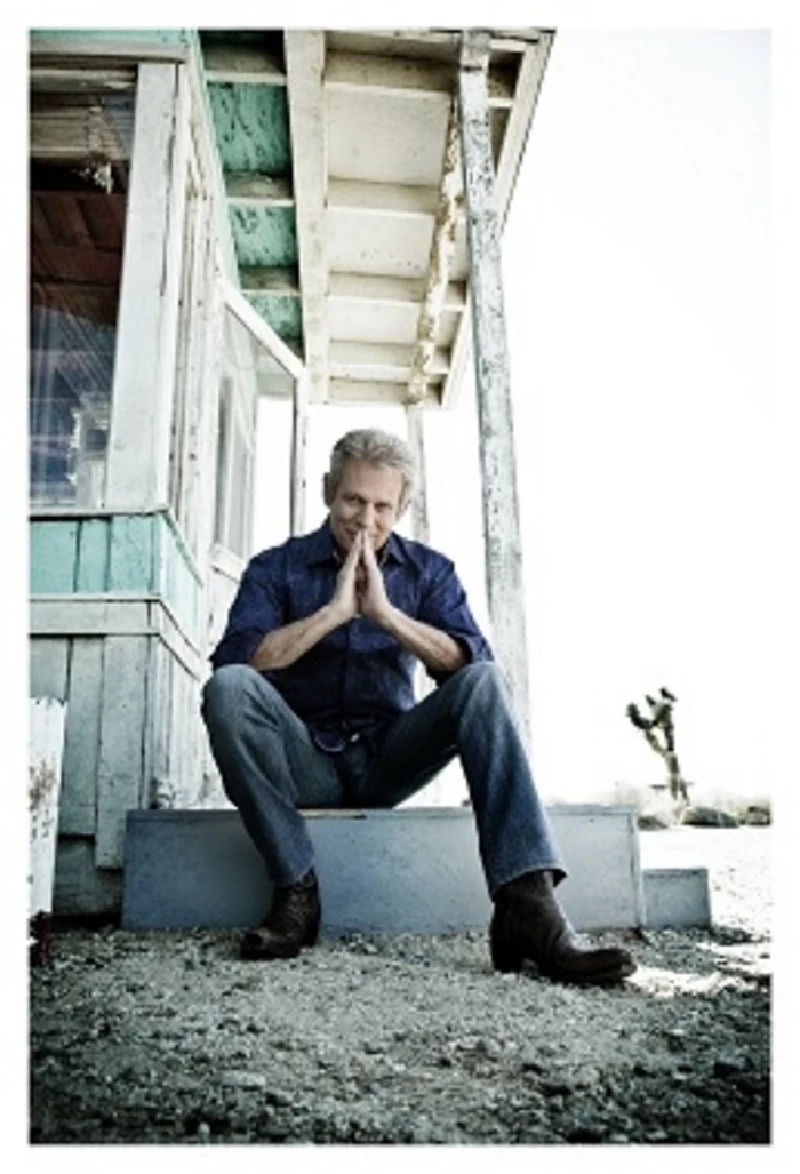
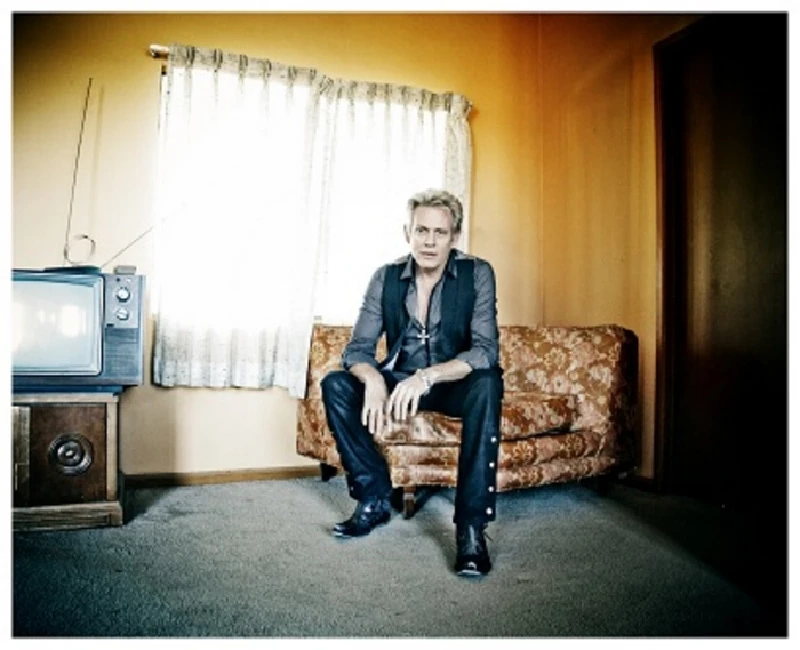
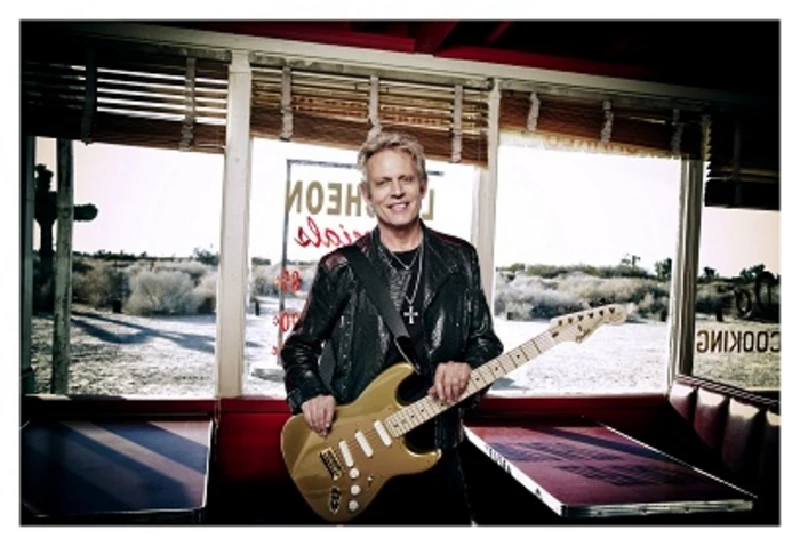
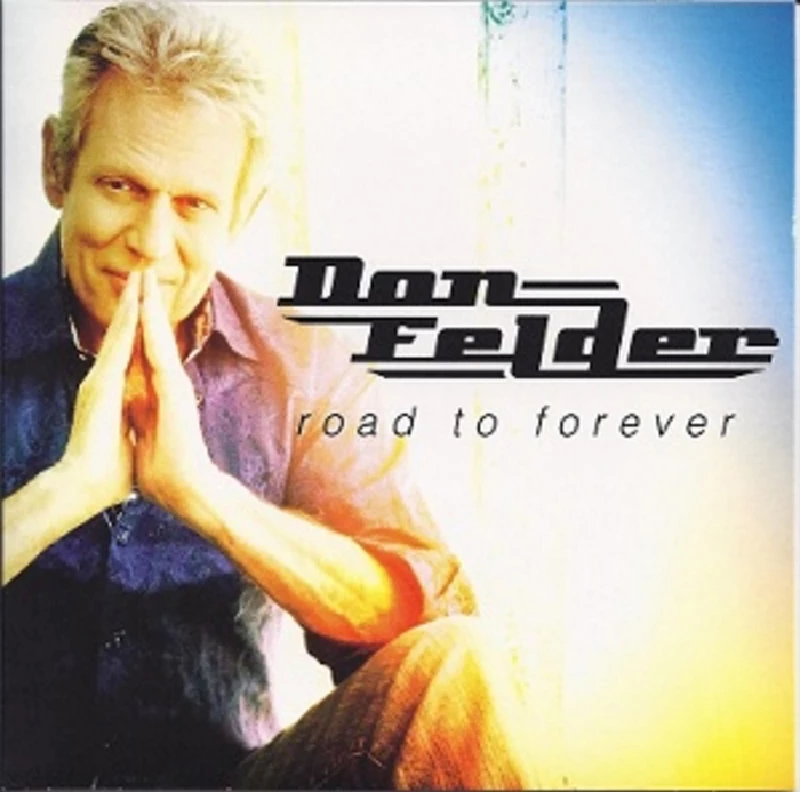
most viewed articles
current edition
John McKay - InterviewRobert Forster - Interview
Cathode Ray - Interview
Spear Of Destiny - Interview
Fiona Hutchings - Interview
When Rivers Meet - Waterfront, Norwich, 29/5/2025
Carl Ewens - David Bowie 1964 to 1982 On Track: Every Album, Every Song
Chris Wade - Interview
Brian Wilson - Ten Songs That Made Me Love...
Shrag - Huw Stephens Session 08.12.10 and Marc Riley Session 21.03.12
previous editions
Heavenly - P.U.N.K. Girl EPBoomtown Rats - Ten Songs That Made Me Love....
Allan Clarke - Interview
Manic Street Preachers - (Gig of a Lifetime) Millennium Stadium, Cardiff, December 1999
Oasis - Oasis, Earl's Court, London, 1995
Barrie Barlow - Interview
Dwina Gibb - Interview
Beautiful South - Ten Songs That Made Me Love...
Pixies - Ten Songs That Made Me Love...
Sound - Interview with Bi Marshall Part 1
most viewed reviews
current edition
Peter Doolan - I Am a Tree Rooted to the Spot and a Snake Moves Around Me,in a CircleVinny Peculiar - Things Too Long Left Unsaid
Garbage - Let All That We Imagine Be The Light
Vultures - Liz Kershaw Session 16.06.88
John McKay - Sixes and #Sevens
Little Simz - Lotus
HAIM - I Quit
Morcheeba - Escape The Chaos
Eddie Chacon - Lay Low
Billy Nomates - Metalhorse
Pennyblackmusic Regular Contributors
Adrian Janes
Amanda J. Window
Andrew Twambley
Anthony Dhanendran
Benjamin Howarth
Cila Warncke
Daniel Cressey
Darren Aston
Dastardly
Dave Goodwin
Denzil Watson
Dominic B. Simpson
Eoghan Lyng
Fiona Hutchings
Harry Sherriff
Helen Tipping
Jamie Rowland
John Clarkson
Julie Cruickshank
Kimberly Bright
Lisa Torem
Maarten Schiethart